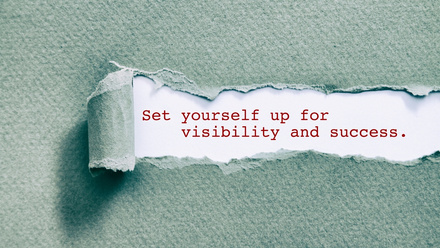Life on board
Francesca Matteoda reflects on life as a member of the ITI Board, and explains the importance of getting involved.
Like any other Institute, ITI would be lost if it did not have a board of directors. The board plays a vital role in planning how ITI runs things and also in planning for the future.
I’ve often heard people complain ‘Why doesn’t ITI do X?’ or say ‘ITI should do Y’, but not many actually step forward and take an active role. I have to admit that at times I have fallen into this category of silent complainers myself. I decided it would be a great idea to join the board and bring fresh ideas – not just my own, but also those of colleagues who have expressed their views to me.
Giving back and taking part in different ways
I’ve been wanting to ‘give something back to the profession’ for many years. That sounds like a cliché, but I can’t think of a better way of putting it. The first step I took towards giving something back to the profession was, as many of you already know, to become a mentor for the Medical and Pharmaceutical and Spanish networks, but I still felt that there was more I could do. So when the call for candidates came through last year, I plucked up my courage and put myself forward.
There were two vacancies, so when four other members stood too, an election was called and I had to write an election statement. I did this reasonably quickly, but once the deadline for editing it had passed, I thought of so many other relevant things that I should have mentioned! It was too late, though, so I sat back and waited in trepidation. As the weeks passed, I convinced myself that hardly anyone would vote for me as my statement was so much poorer than the others.
So you can imagine my amazement when Paul Wilson, ITI’s Chief Executive, called to welcome me as a new board member! I was thrilled and spent the rest of the day on a high, but then came crashing down when I started to think about the extent of the enormous responsibility I had just taken on, because becoming a board member is not something to be taken lightly.
Meeting and involvement (in person and online)
Being on the board does involve a lot of work. There is paperwork to get through before anything can be done (you have to sign several declarations, fill in a few forms, and so on), but once that is out of the way everything goes more smoothly.
Usually, there are supposed to be four in-person meetings at ITI headquarters in Milton Keynes and four online evening meetings. This year, of course, most of the in-person meetings have been taking place online, but we held our first in-person one on 7 and 8 September this year. I was one of three board members who weren’t able to be there, but we were able to connect via Zoom so the people attending in person could see us on a huge screen and we could see them on our computer screens.
This ‘hybrid meeting’ worked well, and although I was very disappointed at not being there in person, I was still able to contribute to the discussions and learn from the others. This hybrid format is an excellent idea, not just now in the pandemic but also for people who have other commitments like parenting or interpreting assignments, as it allows you to participate from your own home.
Practicalities, timings and compensation
If you are thinking about stepping forward, there are a few things to bear in mind. First, being a good listener is helpful. Second, you will need to make some time commitments. In-person meetings are held over two days, starting at lunchtime on day one and ending at lunchtime on day two. This year we also held a one-day strategy meeting straight afterwards (this happens every two years), so were also busy for the afternoon of day two and morning of day three. Food is provided, and there’s some financial compensation for loss of earnings while you’re attending these meetings whether you attend in person or online. Travel expenses and accommodation are also covered.
The evening meetings are usually held at 8pm GMT and are supposed to last two hours, but to date, the ones I have attended have always been longer. You need to bear this in mind if you are in a different time zone. The first meeting I attended lasted three hours, which took me past my usual midweek bedtime as I live in Spain. There are some short breaks during the meetings, so you can stretch your legs and rest your eyes for a few minutes or refill your glass of wine. There’s no financial compensation for these.
Board meetings require preparation. The agenda and any relevant documents are circulated several weeks in advance, so you know what will be discussed and can prepare for it. You do this in your own time, but you do need to take your role seriously and read everything beforehand. This can take up to a couple of hours, depending on how many documents there are and how fast you read. You may also wish to take on other tasks (working on outreach or diversity, writing for the Bulletin, helping with the ITI Conference and so on), but no one will force you to take on anything you don’t want, particularly in your first year.
Interested? Step forward now
It is work; but being on the board is tremendously rewarding. Not only are you taking an active role in how your institute is run, which is a wonderful feeling, but you are also constantly learning from the others – and then there’s the social side! Obviously when attending via Zoom you miss out on the evening dinners, but it can still be fun. The current board members are a lovely group. I was rather nervous before attending my first meeting but was welcomed so warmly by everyone that my nerves disappeared within minutes of logging on.
This article first appeared in the November-December 2021 edition of ITI Bulletin.






